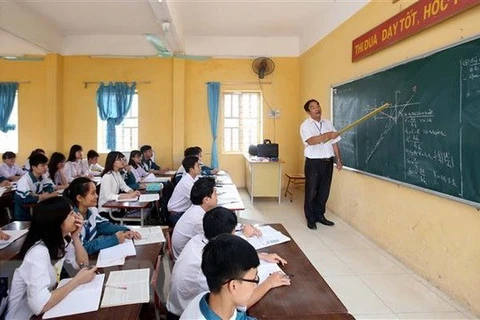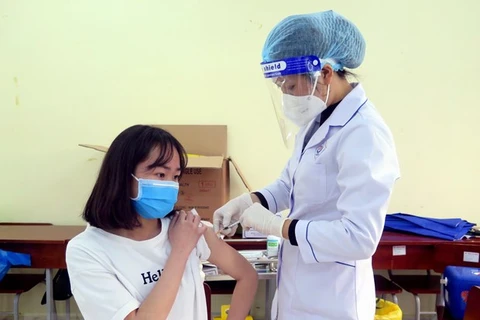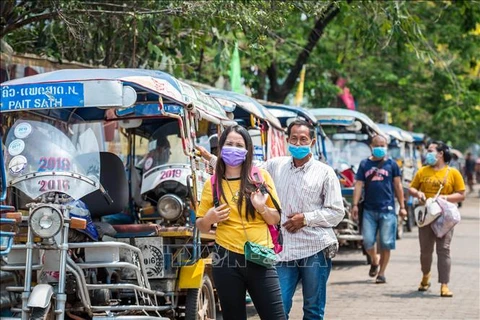Hanoi (VNA) – Prime Minister Pham Minh Chinh has asked the Ministry of Health (MoH) to promptly build a plan for vaccinating children aged 5-11 against COVID-19, which will be submitted to the Politburo for consideration and decision, according to an announcement released on December 8 by the Government’s Office.
The announcement was issued following a meeting between the PM and ministries and agencies in accelerating the development and transfer of production technology of COVID-19 vaccines and drugs last weekend.
PM Chinh tasked the MoH with urgently finalising a master plan on containing COVID-19 which provides details on the number of doses, types of vaccines, age groups, booster shots and others, and proposes a roadmap for mobilising social resources for COVID-19 vaccination.
The MoH should thoroughly devise a vaccine procurement plan for next year, it said, adding that contracts for securing vaccines for children must be signed this month.
The PM also urged the ministry to further speed up vaccine rollout nationwide as the country is set to complete the inoculation of adults (aged 18 and above) with two jabs by December 15.
According to the announcement, Vietnam aims to provide the adults with booster shots before June 2022, with priority to given to senior citizens aged 50 and older and frontline workers.
As of December 8, Vietnam have inoculated over 129.4 million doses of COVID-19 vaccines, with about 55.5 million people, or more than half of the country’s population of roughly 100 million, receiving two doses.
The country started to vaccinate children aged 12-17 in late October./.
PM Chinh tasked the MoH with urgently finalising a master plan on containing COVID-19 which provides details on the number of doses, types of vaccines, age groups, booster shots and others, and proposes a roadmap for mobilising social resources for COVID-19 vaccination.
The MoH should thoroughly devise a vaccine procurement plan for next year, it said, adding that contracts for securing vaccines for children must be signed this month.
The PM also urged the ministry to further speed up vaccine rollout nationwide as the country is set to complete the inoculation of adults (aged 18 and above) with two jabs by December 15.
According to the announcement, Vietnam aims to provide the adults with booster shots before June 2022, with priority to given to senior citizens aged 50 and older and frontline workers.
As of December 8, Vietnam have inoculated over 129.4 million doses of COVID-19 vaccines, with about 55.5 million people, or more than half of the country’s population of roughly 100 million, receiving two doses.
The country started to vaccinate children aged 12-17 in late October./.
VNA
























